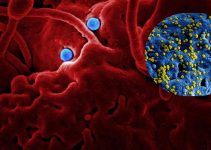Between 40 and 50 years of age, at least two-thirds of women experience menopausal symptoms, such as irritability, mood swings, tiredness, and night sweats.
On the other hand, menopausal women are at higher risk for osteoporosis, diabetes, obesity, and heart disease.
In this way, many women opt for natural remedies to alleviate menopausal symptoms.
Here are 11 natural ways to reduce these symptoms.
1. Eat Foods Rich in Calcium and Vitamin D
Hormonal changes during menopause can weaken bones, increasing the risk of osteoporosis.
For this reason, it is essential to consume vitamin D to improve bone health. Its consumption reduces the risk of hip fractures caused by weak bones.
In principle, the foods that provide the most calcium are dairy products such as yogurt and milk.
But green leafy vegetables also provide a large amount of calcium.
It is also essential to sunbathe as this increases vitamin D levels. You can also take supplements made from this vitamin.
2. Achieve and Maintain a Healthy Weight
Gaining weight during menopause is very common due to hormonal changes and aging.
The problem with weight gain is that it lowers the risk of diabetes and heart disease. In addition, it increases the symptoms of menopause.
According to scientific research, women who lost at least 10% of their body weight in one year were more likely to eliminate night sweats and hot flashes.
3. Eat Lots of Fruit and Vegetables
Fruits and vegetables give us an incredible feeling of satiety without a high-calorie intake. This is beneficial for losing weight.
They also help prevent diseases such as heart disease. This is important because the risk of suffering from it is greater after menopause.
Also, fruits and vegetables prevent muscle loss. In fact, one study found that menopausal women who ate more fruits and vegetables had a lower risk of broken bones.
4. Avoid Trigger Foods
It is essential to avoid foods that trigger menopausal symptoms, such as coffee, alcohol, and spicy foods.
Please pay attention to foods that increase your symptoms and avoid them.
5. Exercise Regularly
While there is not yet enough evidence to confirm that exercise helps eliminate menopausal symptoms, it is known to help improve the body’s overall health.
For example, it improves metabolism, strengthens bones and joints, and reduces stress.
A study on menopausal women found that exercising three hours a week improves physical and mental health.
In addition, exercising helps prevent cancer, hypertension, strokes, heart disease, diabetes, osteoporosis, and obesity.
6. Eat More Foods That Are High in Phytoestrogens
Phytoestrogens are natural plant compounds that have estrogen-like effects. In this way, it helps balance hormones during menopause.
Foods rich in phytoestrogens include soybeans, sesame seeds, and beans.
According to a study, diets rich in soy help reduce the symptoms of menopause.
7. Drink Enough Water
The reduction in estrogen levels causes dehydration in menopausal women.
In addition, water helps you lose weight as it prolongs the feeling of fullness and improves metabolism.
In fact, consuming 500 ml of water half an hour before meals helps you consume 13% fewer calories.
8. Reduce Refined Sugar and Processed Foods
Scientific research has found that consuming refined carbohydrates increases the risk of depression in postmenopausal women.
In addition, this type of food also affects bone health. In fact, a study conducted on menopausal women found that diets high in processed foods cause bone problems.
9. Don’t Skip Meals
Skipping meals can make menopausal symptoms worse.
A weight management program for postmenopausal women found that skipping meals delayed weight loss.
10. Eat Protein-Rich Foods
According to a study, consuming protein with each meal helps reduce muscle loss caused by aging.
In addition, diets rich in protein help you lose weight by prolonging the feeling of fullness and increasing the burning of calories.
11. Take Natural Supplements
You can also take natural supplements to alleviate the symptoms of menopause.
Some leading natural supplements that you can consume are:
- Black cohosh: there is no evidence yet to affirm this, but it is believed to help prevent hot flashes. However, the long-term effects of consuming this supplement are not yet known.
- Phytoestrogens: they can be incorporated both through natural foods and through supplements such as red clover extracts. However, there is not yet enough evidence to confirm that they alleviate menopausal symptoms.
- Other supplements: The evidence is scant for other supplements such as prebiotics, probiotics, kava, dong quiai, and evening primrose oil.
Take-Home Message
Menopause is a natural time in the life of women.
Although your symptoms may be challenging to deal with, eating a healthy diet and getting regular physical activity can help relieve symptoms.
Try the tips above to make the time of menopause more satisfying.





